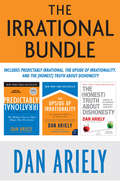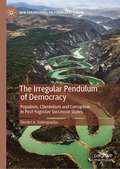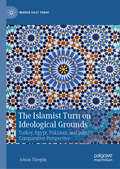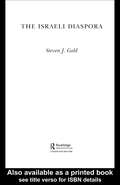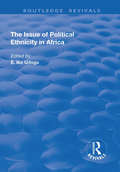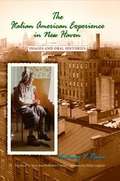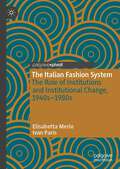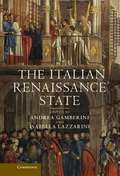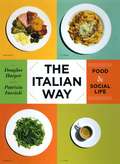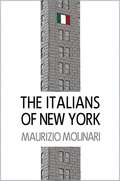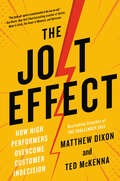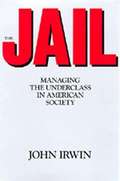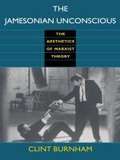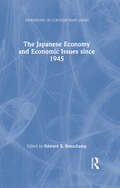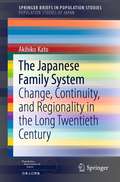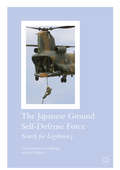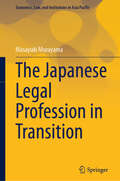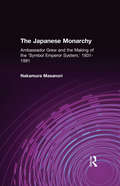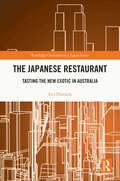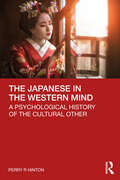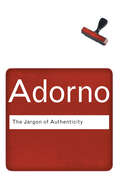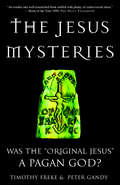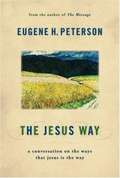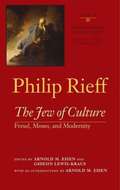- Table View
- List View
The Irrational Bundle
by Dr Dan ArielyDan Ariely's three New York Times bestselling books on his groundbreaking behavioral economics research, Predictably Irrational, The Upside of Irrationality, and The (Honest) Truth About Dishonesty, are now available for the first time in a single volume.
The Irregular Pendulum of Democracy: Populism, Clientelism and Corruption in Post-Yugoslav Successor States (New Perspectives on South-East Europe)
by Dimitri A. SotiropoulosThis book argues that the backsliding or stagnation of democracy should be interpreted in a wider perspective on irregular movements towards and away from contemporary liberal democracy. This a perspective couched by a metaphor, namely the 'pendulum of democracy', which the author has constructed to suggest that democratic regimes may swing between a democratic end (fully developed liberal democracy) and a semi-authoritarian end (competitive authoritarianism). The pendulum does not have a predictable frequency. Democratization may lead to irregular movements back and forth. It is easier to analyze such movements of the pendulum when democracy is not consolidated yet (for instance, in the three post-Yugoslav political regimes mentioned above), as democratic institutions and processes are not yet stable. For this reason, this book analyses the swing of unconsolidated democracy away from the democratic end in the cases of today’s Serbia and Montenegro and the swing back towards liberal democracy in the case of North Macedonia which - until 2017 - had been developing into a competitive authoritarian regime, but then embarked on the road to democratic recovery.
The Islamist Turn on Ideological Grounds: Turkey, Egypt, Pakistan, and Iran in Comparative Perspective (Middle East Today)
by Adnan TüregünMany states in the Islamic Middle East, North Africa, and South Asia that had previously experienced some measure of secularism turned to Islam in the late 20th and early 21st centuries. In so doing, they have changed the political landscape of their nations and the entire region, also significantly influencing international politics. The Islamist Turn outlines, explains, and demonstrates this change. And, on all three counts, the book fills an important gap in our collective knowledge by developing a typology of Islamist turns based on the institutional aspect of the change; offering an ideational explanation of the turns with an emphasis on the political ideologies and strategies of rulers; and studying the cases of Turkey, Egypt, Pakistan, and Iran as exemplary of the Islamist turns in the region.
The Israeli Diaspora (Global Diasporas)
by Steven J. GoldIn this fascinating study, based on extensive field work in the major Israeli communities of New York, Los Angeles, London, Paris and Sydney, Steven J. Gold looks at their reasons for leaving - existing links abroad, political and economic dissatisfaction at home and, in the case of the Sephardim or Israelis of non-European origin, often a feeling of being treated as second-class citizens - the tensions, compromises and satisfactions involved in their relations with Israelis who have not left and with the Jewish and non-Jewish communities in the countries in which they settle. In a final chapter, he talks to those who, after years as emigrants, have made the decision to return. The end result is a major contribution to the study not just of the Israeli diaspora but also to our wider understanding of migration and transnational identity.Winner of the 2003 Thomas and Znaniecki Award (American Sociological Association International Migration Section)
The Israeli-Palestinian Peace Movement
by Donna J. PerryThis study shows the promise of Israeli-Palestinian peace from the perspective of former combatants who transform themselves, each other, and those around them through moral conviction and action that reclaims the dignity of both peoples.
The Issue of Political Ethnicity in Africa (Routledge Revivals)
by E. Ike UdoguThis title was first published in 2001. The central characteristics of political ethnicity and its dysfunctional attributes in African politics is vexing to Africa's policy makers. Moreover, as a conflictive ideology in national and international politics, many political actors would rather avoid it. In the past, nationalists have blamed ethnic chauvinists for fanning the embers of ethnicity, but today they realize they may have underestimated its prominence in African politics.
The Italian American Experience in New Haven: Images and Oral Histories (SUNY series in Italian/American Culture)
by Anthony V. RiccioA compelling social history of a vibrant immigrant community, told through interviews and photographs.
The Italian Fashion System: The Role of Institutions and Institutional Change, 1940s–1980s (Palgrave Studies in Economic History)
by Elisabetta Merlo Ivan ParisFashion is a research topic of increasing interest to economic and business historians as it points towards new understandings of economic growth and decline. This book explores the role of institutions and institutional change in the Italian fashion system from the 1940s to the 1980s. Starting from the premise that institutions play a central role in explaining the peculiarity and development of the Italian fashion system, this book analyses the diverse institutional entities involved in supporting and promoting Italian fashion. The objective is twofold: to highlight, with a comparative approach, the distinctly polycentric nature of Italian fashion and to explain the emergence of the stylist as the outcome of a lengthy process of institutional change. The book explores the role that institutions and institutional actors have played in making Italian fashion a key player into the world economy, enriching the existing interpretative framework through unique interdisciplinary analysis. This book will be of interest to researchers and students working in economic and business history, the history of fashion, and cultural studies.
The Italian Renaissance State
by Andrea Gamberini Isabella Lazzarini"This magisterial study proposes a revised and innovative view of the political history of Renaissance Italy. Drawing on comparative examples from across the peninsula and the kingdoms of Sicily, Sardinia and Corsica, an international team of leading scholars highlights the complexity and variety of the Italian world from the fourteenth to early sixteenth centuries, surveying the mosaic of kingdoms, principalities, signorie and republics against a backdrop of wider political themes common to all types of state in the period. The authors address the contentious problem of the apparent weakness of the Italian Renaissance political system. By repositioning the Renaissance as a political, rather than simply an artistic and cultural phenomenon, they identify the period as a pivotal moment in the history of the state, in which political languages, practices and tools, together with political and governmental institutions, became vital to the evolution of a modern European political identity"--
The Italian Way: Food and Social Life
by Douglas A. Harper Patrizia FaccioliOutside of Italy, the country's culture and its food appear to be essentially synonymous. And indeed, as The Italian Way makes clear, preparing, cooking, and eating food play a central role in the daily activities of Italians from all walks of life. In this beautifully illustrated book, Douglas Harper and Patrizia Faccioli present a fascinating and colorful look at the Italian table. The Italian Way focuses on two dozen families in the city of Bologna, elegantly weaving together Harper's outsider perspective with Faccioli's intimate knowledge of the local customs. The authors interview and observe these families as they go shopping for ingredients, cook together, and argue over who has to wash the dishes. Throughout, the authors elucidate the guiding principle of the Italian table--a delicate balance between the structure of tradition and the joy of improvisation. With its bite-sized history of food in Italy, including the five-hundred-year-old story of the country's cookbooks, and Harper's mouth-watering photographs, The Italian Way is a rich repast--insightful, informative, and inviting.
The Italians of New York
by Maurizio MolinariAn overview of generations of Italians in the Big Apple, weaving together numerous stories from different epochs and different backgrounds. "If you want to learn something about Italian creativity, come to New York. Here, you will find the pride of flying the Italian colors at the Fifth Avenue Columbus Day Parade, the American patriotism of those who perished at Ground Zero, the courage of firefighters and marines on the frontline of the war against terrorism, the babel of dialects at the Arthur Avenue market, portrayals of social change in the writings of Gay Talese, stories of successful business ventures on the TV shows of Maria Bartiromo and Charles Gasparino, political passion in the battles of Mario Cuomo and Rudy Giuliani, creative imagination in the works of Gaetano Pesce, Renzo Piano and Matteo Pericoli, and provocation in the attire of Lady Gaga... The Midtown top managers, whoarrived in the past twenty years, operate in the XXI century, while on Fresh Pond Road in Ridgewood the panelle are still prepared according to the Sicilian recipes transmitted from one generation to the next." (From the "Introduction")
The JOLT Effect: How High Performers Overcome Customer Indecision
by Matthew Dixon Ted McKennaFrom the bestselling co-author of The Challenger Sale, a paradigm-shattering approach to overcoming customer indecision and closing more salesIn sales, the worst thing you can hear from a customer isn&’t &“no.&” It&’s &“I need to think about it.&” When this happens, deeply entrenched business advice says to double down on your efforts to sell a buyer on all the ways they might win by choosing you and your business. But this approach backfires dramatically. Why? Because it completely gets wrong the primary driver behind purchasing decision-making: once purchase intent is established, customers no longer care about succeeding. What they really care about is not failing. For years, sales expert Matthew Dixon has been busting longstanding business myths. Now in The JOLT Effect, he and co-author Ted McKenna turn their trademark analysis and latest research to the vital and growing problem of customer indecision—and offer a shocking new approach that turns conventional wisdom on its head. Drawing on a brand-new, first-of-its-kind study of more than two and a half million sales conversations from across industry, they reveal the surprising truth that high-performing sales reps grasp and their average-performing peers don&’t: only by addressing the customer&’s fear of failure can you get indecisive buyers to go from verbally committing to actually pulling the trigger. Packed with robust data, counterintuitive insights, and practical guidance, The JOLT Effect is the playbook for any salesperson or sales leader who wants to close the gap between customer intent and action—and close more sales.
The Jail: Managing the Underclass in American Society
by John IrwinCombining extensive interviews with his own experience as an inmate, John Irwin constructs a powerful and graphic description of the big-city jail. Unlike prisons, which incarcerate convicted felons, jails primarily confine arrested persons not yet charged or convicted of any serious crime.
The Jamesonian Unconscious: The Aesthetics of Marxist Theory
by Clint BurnhamImagine Fredric Jameson--the world's foremost Marxist critic--kidnapped and taken on a joyride through the cultural ephemera, generational hype, and Cold War fallout of our post-post-contemporary landscape. In The Jamesonian Unconscious, a book as joyful as it is critical and insightful, Clint Burnham devises unexpected encounters between Jameson and alternative rock groups, new movies, and subcultures. At the same time, Burnham offers an extraordinary analysis of Jameson's work and career that refines and extends his most important themes.In an unusual biographical move, Burnham negotiates Jameson's major works--including Marxism and Form, The Political Unconscious, and Postmodernism, or, The Cultural Logic of Late Capitalism--by way of his own working-class, queer-ish, Gen-X background and sensibility. Thus Burnham's study draws upon an immense range of references familiar to the MTV generation, including Reservoir Dogs, theorists Slavoj Zizek and Pierre Bourdieu, The Satanic Verses, Language poetry, the collapse of state communism in Eastern Europe, and the indie band Killdozer. In the process, Burnham addresses such Jamesonian questions as how to imagine the future, the role of utopianism in capitalist culture, and the continuing relevance of Marxist theory.Through its redefinition of Jameson's work and compelling reading of the political present, The Jamesonian Unconscious defines the leading edge of Marxist theory. Written in a style by turns conversational, playful, and academic, this book will appeal to students and scholars of Marxism, critical theory, aesthetics, narratology, and cultural studies, as well as the wide circle of readers who have felt and understood Jameson's influence.
The Japanese Economy and Economic Issues since 1945 (Dimensions of Contemporary Japan #5)
by Edward R. BeauchampFirst Published in 1999. The best scholarship on the development of contemporary Japan This collection presents well over 100 scholarly articles on modern Japanese society, written by leading scholars in the field. These selections have been drawn from the most distinguished scholarly journals as well as from journals that are less well known among specialists; and the articles represent the best and most important scholarship on their particular topic. An understanding of the present through the lens of the past The field of modern Japan studies has grown steadily as Westerners have recognized the importance of Japan as a lading world economic force and an emerging regional power. The post-1945 economic success of the Japanese has, however, been achieved in the context of that nation's history, social structure, educational enterprise and political environment. It is impossible to understand the postwar economic miracle without an appreciation of these elements. Japan's economic emergence has brought about and in some cases, exacerbated already existing tensions, and these tensions have, in turn, had a significant impact on Japanese economic life. The series is designed to give readers a basic understanding of modern Japan-its institutions and its people-as we stand on the threshold of a new century, often referred to as "the Pacific Century".
The Japanese Family System: Change, Continuity, and Regionality in the Long Twentieth Century (SpringerBriefs in Population Studies)
by Akihiko KatoThis book offers a new perspective and empirical evidence that are relevant for understanding changes in family structures, intergenerational relationships, and female labor force participation in the “strong family” societies and that also shed light on those in the “weak family” societies. Focusing on the stem family and the gender division of labor, presenting detailed quantitative evidence, and testing the theories on family change and gender revolution, the book provides a comprehensive examination of change, continuity, and regionality in the Japanese family system over the twentieth century.By analyzing data from a nationally representative life course survey with event history techniques, it investigates factors affecting post-marital intergenerational co-residence and proximate residence along with those influencing continuous and/or discontinuous employment of married women across the life course. In this way, it reveals the mechanisms underlying the stem family formation and those behind married women’s M-shaped employment pattern. It further explores regionality in the Japanese family system, applying a demographic mapping method to data from a nationally representative community survey and official statistics. The mapping analyses demonstrate persistent geographical contrasts between two types of living arrangements (single-household versus multi-household) in the stem family accompanied by two types of maternal employment (full-time versus part-time). They also reveal a historical correlation between traditional communal parenting systems and modern childcare services, linking past to present from the late nineteenth to the early twenty-first century.
The Japanese Ground Self-Defense Force
by Paul Midford Robert D. EldridgeBased on extensive Japanese-language materials, this book is the first to examine the development of Japan's Ground Self-Defense Force. It addresses: how the GSDF was able to emerge as the post-war successor of the Imperial Japanese Army despite Japan's anti-militarist constitution; how the GSDF, despite the public skepticism and even hostility that greeted its creation, built domestic and international legitimacy; and how the GSDF has responded to changes in international and domestic environments. This path-breaking study of the world's third-largest-economic power's ground army is timely for two reasons. First, the resurgence of tensions in Northeast Asia over territorial disputes, and the emphasis recent Japanese governments have placed on using the GSDF for defending Japan's outlying islands is driving media coverage and specialist interest in the GSDF. Second, the March 11, 2011 Great East Japan Earthquake and Tsunami has focused global attention on the GSDF as Japan's lead disaster relief organization. This highly informative and thoroughly researched book provides insight for policy makers and academics interested in Japanese foreign and defense policies.
The Japanese Legal Profession in Transition (Economics, Law, and Institutions in Asia Pacific)
by Masayuki MurayamaThis book focuses on the stratification of the Japanese legal profession and its impact on legal practice, drawing upon findings from two national surveys, one on Japanese lawyers (2018-19) and the other on Japanese people (2021), as well as qualitative data from interviews. Our research data clearly shows the increase of the lawyer population changed their whole world. Pressure from the lawyer population increase has not only made the stratification more visible but also diversified lawyers' career and their strategies of cultivating their legal service market. Legal practice is moving from professionalism to consumerism. Relying on retrospective data of individual lawyers' careers, this research shows how individual lawyers navigated their work and career and what have been major factors that affected their career paths. The research also shows a huge variety of lawyer's office management policies related with their market strategies. It is the first time that a national survey of lawyers was designed to obtain retrospective data of individual lawyers in Japan. This book gives a latest landscape of the Japanese legal profession in flux and the public view of changing legal practice.
The Japanese Monarchy, 1931-91: Ambassador Grew and the Making of the "Symbol Emperor System" (Japan In The Modern World Ser.)
by Masanori Nakamura"The Japanese Monarchy, 1931-1991", which created a sensation when first published in Japanese, clarifies US policies toward Japan's symbol emperor system before, during and after World War II. As American ambassador to Japan from 1932 to 1945, Joseph Clark Grew had contacts with groups close to the emperor as well as leading "moderates". Returning to the US after the outbreak of the war, he made many speeches, first condemning Japanese aggression, but later changing his theme from war to peace, even to suggesting that the emperor would be a key asset in stabilising Japanese society after the war, a view which was widely criticised at the time. Later, as under secretary of state, Grew came to play an important role in the formation of postwar US policy on Japan and the emperor. His view that the emperor was a pacifist who opposed and sought to end the war with the US and that thus postwar Japan should be reconstructed with the emperor and the moderates at the centre, was later adopted in the decision of Douglas MacArthur's occupation to preserve the emperor system. That the evolution of an ambassador's convictions could have such a significant impact, even to this day, on postwar US-Japan relations vividly illustrates the importance of truly understanding the history and culture of another country, whether friend or foe.
The Japanese Restaurant: Tasting the New Exotic in Australia (Routledge Contemporary Japan Series)
by Iori HamadaThis book explores the growth and operations of the Japanese restaurant in Australia since the early 2000s from perspectives of both restaurant workers and consumers. Through first-hand testimonies, collected from chefs, restaurateurs, gourmets and casual diners, it demonstrates how Japanese restaurants act as cultural hubs, connecting a diverse community of migrants, Australian citizens and international tourists, while also disseminating knowledge of Japanese culinary cultures. The ethnographic evidence presented challenges the colonialist and essentialist understandings of the ‘exotic’ and ‘Japanese-ness’ as the ‘inferior Other’ to the West. In so doing, the book highlights the complex manifestations of cross-cultural desires, translating practices and the performative racial-ethnic mimesis of Japanese ethnicity. Featuring critical investigation into the fixed notions of otherness, race, ethnicity and authenticity this book will be a valuable resource to students and scholars of Japanese society and culture, particularly Japanese food culture.
The Japanese in the Western Mind: A Psychological History of the Cultural Other
by Perry R HintonThis fascinating book is an insightful exploration of Western perceptions and representations of Japanese culture and society, drawing on social and cultural psychological ideas around stereotypes and intercultural relations. Hinton considers how the West views the Japanese as an ideologically different “other”, and proposes a cultural theory of stereotypes from which to explore Western observations of the Japanese. The book explores Western socio-cultural representations of the Japanese alongside Edward Said’s well-known theory of Orientalism. It examines the West’s intercultural relationship with Japan, and how this has changed over time, to show how the Japanese have been represented in the Western mind throughout history, to the present day. Hinton argues that our view of other cultures is based on our own cultural expectations, which involve complex issues of meaning-making and perceived cultural differences. This book foregrounds the research through accounts of Westerners about the Japanese, to reveal how cultural representations can influence the ways in which people from different cultures communicate in interaction, and how intercultural understanding or misunderstanding can arise. By reflecting on the changing Western representations of the Japanese, and how and why these have emerged, this book will be of interest to students, academics and general readers interested in stereotypes, cultural psychology, intercultural communication, anthropology and Japanese culture and history.
The Jargon of Authenticity (Routledge Classics)
by Theodor AdornoTheodor Adorno was no stranger to controversy. In The Jargon of Authenticity he gives full expression to his hostility to the language employed by certain existentialist thinkers such as Martin Heidegger. With his customary alertness to the uses and abuses of language, he calls into question the jargon, or 'aura', as his colleague Walter Benjamin described it, which clouded existentialists' thought. He argued that its use undermined the very message for meaning and liberation that it sought to make authentic. Moreover, such language - claiming to address the issue of freedom - signally failed to reveal the lack of freedom inherent in the capitalist context in which it was written. Instead, along with the jargon of the advertising jingle, it attributed value to the satisfaction of immediate desire. Alerting his readers to the connection between ideology and language, Adorno's frank and open challenge to directness, and the avoidance of language that 'gives itself over either to the market, to balderdash, or to the predominating vulgarity', is as timely today as it ever has been.
The Jesus Mysteries: Was the "Original Jesus'' a Pagan God?
by Timothy Freke Peter GandyThis astonishing book completely undermines the traditional history of Christianity that has been perpetuated for centuries by the Church. Drawing on the cutting edge of modern scholarship, authors Tim Freke and Peter Gandy present overwhelming evidence that the Jesus of the New Testament is a mythical figure.Far from being eyewitness accounts, as is traditionally held, the Gospels are actually Jewish adaptations of ancient Pagan myths of the dying and resurrecting godman Osiris-Dionysus. The supernatural story of Jesus is not the history of a miraculous Messiah, but a carefully crafted spiritual allegory designed to guide initiates on a journey of mystical discovery.A little more than a century ago most people believed that the strange story of Adam and Eve was history; today it is understood to be a myth. Within a few decades, Freke and Gandy argue, we will likewise be amazed that the fabulous story of God incarnate -- who was born of a virgin, who turned water into wine, and who rose from the dead -- could have been interpreted as anything but a profound parable.
The Jesus Way: A Conversation on the Ways That Jesus Is the Way
by Eugene H. PetersonFollowing his "Eat This Book" as the third of a five-volume series on spiritual theology, Eugene Peterson continues his theological conversation with the church in "The Jesus Way." Here he considers all the ways that Jesus is the Way compared to the distorted ways the modern American church has chosen to follow. Arguing that the way Jesus leads and the way that we follow are symbiotic, Peterson begins with an extensive study of how the ways of those who came before Christ -- Abraham, Moses, David, Elijah, Isaiah of Jerusalem, and Isaiah of the Exile -- revealed and prepared the "way of the Lord" that became complete in Jesus. He then challenges the ways of the contemporary American church, showing in stark relief how what we have chosen to focus on -- consumerism, celebrity, charisma, and so on -- obliterates what is unique in the Jesus way. A stunning analysis of the gap between the personal Jesus and the impersonal modern church, "The Jesus Way: A Conversation on the Ways That Jesus Is the Way" is sure to engender debate and to inspire a movement back to the true way of Christ.
The Jew of Culture: Freud, Moses, And Modernity
by Philip RieffRieff’s long career, "Jew of culture" would serve as foil, counter type, corrective, and adversary to the "therapeutics" who represented both Rieff’s analysands and his antagonists. The purpose of this collection of Rieff’s writings, undertaken at his suggestion, is to trace the evolution of the "Jew of culture" over the course of his work. In doing so we gain particular insight into his distinctive theory of society and the self; we also come to better understand the theorist.
